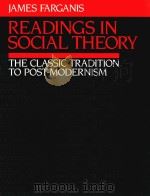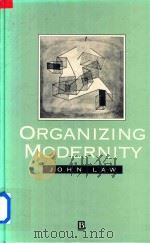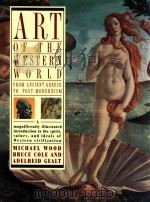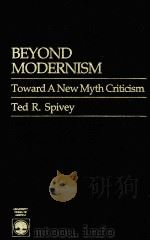《THEORETICAL CRIMINOLOGY:FROM MODERNITY TO POST-MODERNISM》
| 作者 | WAYNE MORRISON著 编者 |
|---|---|
| 出版 | 未查询到或未知 |
| 参考页数 | 518 |
| 出版时间 | 没有确切时间的资料 目录预览 |
| ISBN号 | 1859412206 — 求助条款 |
| PDF编号 | 812133818(仅供预览,未存储实际文件) |
| 求助格式 | 扫描PDF(若分多册发行,每次仅能受理1册) |

1 NARRATING THE MOOD OF THE TIMES: CONFUSION, SELF-DOUBT, AND AMBIVALENCE1
Finding places, finding time, finding beginnings1
Journeys, snippetsmodernisations2
The problem of the modem world4
Reflexivity, and the principle of the recognisability of the world6
The subject matter of criminology is inherently contestable6
How is criminology presented? How are criminological texts structured?7
Classicism8
Positivism in the 19th century8
In the early development of positivism, crime was viewed as a natural problem to be cured, similar to a disease9
A crucial area of conflict has been, to what does the concept of crime refer?10
A period of contextualising of criminology occurred in the 1960s and 1970s11
The consensus or functionalist model13
The pluralist model13
The conflict model14
The meaning of the central concepts of criminology varies according to your scientific perspective14
Contemporary criminology has different perspectives on central issues15
Post-modernism and the acceptance of language games as the reality of social life15
Living, and making sense of life, within multiple perspectives is the problem of the post-modem condition16
But if there is not any natural crime how can criminology have a basic phenomena to investigate?17
Because we are trapped in the circles of social processes does not condemn criminology to mindless relativism, nor should it amount to a surrender of modernity to the forces of the pre-modern masquerading in the guise of a retum to basics18
The current position: etiological scepticism and conservative responses18
The final (conservative?) position: the concept of the self and self-control as the bed-rock for founding a general theory of crime20
Interactionism as a theme for a general theory22
The possibility of a criminology of modernity?23
2 THE PROBLEM OF MODERNITY25
The concept of modernity25
Modernity and control28
Modernity and civilisation28
Modernity as the product of a transformation29
Modem social life as a normative project29
The twin stages of modernity29
Is modernity exhausted? Has it lost its force?32
Post-modernity, or the realisation of the impossibility of fulfilling modernity?33
The strains of modernity contained within the discourse of emancipation35
The need for empirical analysis of the reality of the socio-political location of individuals and groups35
The discourse of liberation and authenticity impact upon the modem self36
Criminology and the social structure of modernity37
The role of liberalism in the constitution of modernity39
3 THE THEORISTS OF MODERNITY: AN INTRODUCTION TO MAX WEBER, KARL MARX, EMILE DURKHEIM AND FREIDRICH NIETZSCHE41
Max Weber and the rationalisation of the world41
The nation state and the rise of capitalism42
The mood of Weber44
The problem of discipline45
Karl Marx45
Jurisprudence is not to be trusted48
What is the real basis of the law?49
Policing becomes a core concern of capitalist social structure50
What is required to escape? To achieve true emancipation?50
What happened? What was the effect of Marx’s writings?51
Emile Durkheim (1858-1917)54
Sociological positivism55
Social solidarity55
The use of law as an index of social social solidarity56
Crime is normal in a society57
Durkheim and the openness of human nature57
The notion of anomie58
Durkheim’s analysis of suicide as the paradigm example of positivism and statistics59
Friedrich Nietzsche (1844-1900)60
Man’s intellectual frameworks were not modern enough61
The paradox of the whole and the parts61
The danger of nihilism61
The legacy of Weber and Nietzsche in the work of Foucault63
Culture and knowledge largely constitute the conditions of the modem63
The void underlying modem existence64
The created nature of modem man65
4 THE PROBLEM OF CLASSICAL CRIMINOLOGY: STABILISING DISORDER THROUGH LAW; OR HOW TO ACHIEVE THE RULE OF LAW AND HIDE THE CHAOS OF EARLY MODERNITY71
Introduction to classical criminology71
God’s death demands new legitimation strategies72
Beccaria (1738-1794)72
Jeremy Bentham (1748-1832)74
Understanding classical criminology and its continuing appeal76
The rule of law as an expression of current features of modernity77
A basic question: how is legitimacy of criminal justice established?78
Classical criminology destroys the magical irrationality of the pre-modem79
The legitimation of decisions in the theological system depended on an overall synthesis80
What does this foundation of mystery entail?82
How is modem society made if not as a reflection of underlying natural laws of social evolution?83
Classical criminology talks the language of a ‘true’ science of man and society, but actually creates a structure separate from nature; it founds the social upon myth and politics86
The need for objectivity and professionalism87
What is rational government?88
The need to stabilise potential chaos89
The results of the constructionist project: the creation of hybrids such as ‘rights’91
5 READING THE TEXTS OF CLASSICAL CRIMINOLOGY: BEYOND MERE COMMAND INTO SYSTEMATIC LEGITIMATION93
What is the nature of the criminal justice system?94
Reading classicism Ⅰ: The construction of Beccaria’s text96
Reading classicism Ⅱ: John Austin and the role of knowledge103
After the destruction of the classicist faith in utility what guides the law?107
Jurists hold that legal regulation, by its nature, seems to imply obedience; why?107
H L A Hart: the critique of classicism in Austin and the response of the civilised man107
Without faith in utilitarianism, and devoid of a natural law110
system, how can the positive law earn respect?110
Conclusion: the dialectic of systems and selves113
6 CRIMINOLOGICAL POSITIVISM Ⅰ: THE SEARCH FOR THE CRIMINAL MAN, OR THE PROBLEM OF THE DUCK115
Introduction to criminological positivism115
Intellectual revolution or a narrowing of concerns?117
Modernity, construction and the social control perspective121
Cesare Lombroso (1835-1909)124
Raffaele Garofalo (1852-1934)126
Enrico Ferri (1856-1929)126
Early criminological positivism and the rule of law128
A E Hooton129
W H Sheldon130
The legacy of positivism: disentangling the mess133
7 CRIMINOLOGICAL POSITIVISM Ⅱ: PSYCHOLOGY AND THE POSITIVISATION OF THE SOUL139
Positivism, learning and psychology139
Bowlby’s theory of maternal deprivation and crime142
Eysenck’s theory of crime144
Edwin Sutherland and the theory of differential association150
The prevalence of white collar crime demonstrated the normalcy of crime155
The extreme criminal: the idea of the psychopath155
The aetiology of psychopathology?158
If this is not a ‘moral disorder’ then there must be a treatment?159
What sort of regimes do the penal systems of England, Wales and Scotland use?160
Evaluation of the treatment effects of Grendon161
Psychopathology and interactive communication162
The knowledges of psychology: tools of control in modernity?163
8 CRIMINOLOGICAL POSITIVISM Ⅲ: STATISTICS, QUANTIFYING THE MORAL HEALTH OF SOCIETY AND CALCULATING NATURE’S LAWS165
The resolution of chance and the chaos of the natural state165
The battle for sociology: a moral science or a statistical science?167
Criminal statistics168
The problem of criminal statistics168
Problems in the compilation of official statistics169
Attempts to mitigate the failings of the official statistics171
The contemporary problem of reflexivity and criminal statistics - do we need a science of interpretation?173
How did we get to the point where statistics dominate criminological discourse?174
Strain theory175
What can we make of this?180
Social control theory183
What are we to make of these ‘control theories?’187
9 POSITIVISM AND THE DREAM OF ORGANISED MODERNITY189
Criminology and the dream of organised modernity189
Social distance190
The development of bureaucracy and the knowledges of disciplinisation193
Governing the population came to mean creating a bourgeois citizenship197
The dialectics of the civilising process199
The reflexive questioning of civilisation202
The impact of crimes of obedience and crimes of bureaucracy203
The structural features of crimes of obedience205
Authorisation207
Routinisation208
Dehumanisation208
Alasdair MacIntyre and the critique of managerial expertise209
Is post-modernism the end of the dream of organised modernity?210
The post-modem condition: life within the unorganised structures of organised modernity?211
Social control in post-modernism: the seduced and the repressed212
10 MORALITY, NORMALCY AND MODERNITY: THE MORAL INTENSITY OF EVERYDAY LIFE215
Analyticism and the problem of contemporary criminology215
H L A Hart: everyday life as the site of analysis218
The complexity of the mundane: the richness of everyday life219
The narratives of civil society223
David Hume (1711-1776) and the foundation of experience223
Immanuel Kant and the need to rely upon pure reason224
The problematic of being a modem and being moral228
Durkheim’s model of modernity restated230
The task of moral socialisation in late-modernity: the example of gender relations232
11 LOCALITY AND CRIMINOLOGY: FROM THE POLIS TO THE POST-MODERN CITY237
The paradox of city li fe: social distance, physical proximity237
Crime links with fear, trust, and predictability239
Telling the story of urban existence: Ⅰ, the oral-ethnographic efforts240
Telling the story of urban existence: Ⅱ, the ecological paradigm and the attempt to develop a science of the city243
The Chicago School used a concept of social disorganisation to explain the ecology of crime246
Understanding urbanity: Ⅲ, beyond the naturalist paradigm249
Can cities be controlled so that community can be created as a livable urban space?251
Locality as a site of social interaction252
End-Game: the city as a site of communication and the arrival of the post-modern city253
The onset of new divisions, social polarisation and the development of an underclass255
An environment of communication257
The late-modern, or post-modern, city as a mobile site258
Modernity: the desire to construct a home and the differing experiences of post-modernity261
Southall261
to be a woman in new york city262
New left realism262
Investigating Los Angeles: Mike Davis and the post-modem City of Quartz266
12 CRIMINOLOGY AND THE CULTURE OF MODERNITY273
Culture as a restraining medium: the case of Japan277
Culture as criminogenic281
Albert Cohen281
Cloward and Ohlin284
The criminal sub-culture or gang286
The conflict sub-culture or gang286
The retreatist sub-culture287
Walter Miller288
Culture and social structure: does working class culture, or a culture of poverty, determine social conditions, or social conditions determine culture?291
Bridging concepts: from social structural to individual or psychological states293
Culture and crime: an extreme example?295
13 CULTURE AND CRIME IN THE POST-MODERN CONDITION297
The challenge of culture under post-modernism: democraticism or incoherence?297
Conceptualising modem identity299
The post-modern condition is the contingency of the normal302
Contingency and the sense of justice306
The melange of the late or post-modern308
The skills of post-modem living: or how can we live in the absence of ‘real’ meaning?309
Location by consumption patterns313
Desire, growth, materiality and the coherence of practical justice315
Understanding the (non)reality of crime: the non-positivist sign319
The cultural paradox of post-modernism: energy and exhaustion319
14 LABELLING THEORY, AND THE WORK OF DAVID MATZA321
Introduction321
Labellling theory: from mechanical naturalism into interactional process321
The understanding of social psychology espoused by Herbert Mead322
David Matza: from hard to soft determinism328
Drift theory332
Direction One: the irony of labelling and the reproduction of delinquency by state intervention334
Direction Two: the power of collective representation:from Matza to Foucault?337
The importance of the sign: the construction of hyper-reality338
Direction Three: positivism fights back asking for a reconciliation with process: seeing criminality as a thought process341
Direction Four: Does the act of labelling invite irrational responses? The games of law, desire and death343
The overuse of law: law’s ability to create crime346
Direction Five: the latent power of existentialism within criminology348
15 CRIME AND THE EXISTENTIALIST DILEMMA349
Combating the vertigo of freedom: the existentialist reconciliation in sincerity and authenticity349
The optimistic ethos of criminological existentialism351
The harsh end of criminological existentialism352
Early modernity and the crime of passion354
Tactic one: the beast within who can overtake us when we are weak or asleep357
Tactic two: the psychopath358
Recognising the existential sensuality of crime358
The sensuality of stealing360
Street Elites: Aristocrat verses rabble364
Rape and sexual homicide365
The dialectic of self-awareness and self-control367
The events which constituted these offences were social actions embodying relations; actions mediated through culture and emotions368
Moral transcendence373
Symbolic displacement378
Conclusion: the message of existentialism?380
16 MODERNITY, GENDER AND CRIME: FROM THE BIOLOGICAL PARADIGM INTO FEMINIST INTERPRETATIONS383
Do women exist?383
Women in the construction of modernity384
Boundary setting: modernity and the otherness of women385
What has criminology said about about all of chis?386
Statistical discrepancy in the commission of crime between men and women387
Individuals found guilty or cautioned for indictable offences per 100,000 people in the population387
Indictable offences (tried in Crown Court)388
Summary offences (tried in magistrates’ courts)388
Understanding the official statistics and criminal involvement388
Several writers have denied the truth of differential involvement in crime389
Victim surveys and self-report tests support the official statistics390
Has there been leniency or chivalry by officials within the Criminal Justice System in their dealings with women?390
What type of crime do women commit? And should we expect their crime to increase?394
Why have there been so few theories on crime which are gender specific?395
Criminological explanations were not set out as ‘arguments explaining why men commit more crime then women’396
Biological and psychological explanations: a critique398
The effect of aggression and biology?399
Sex role socialisation400
Is there an increase in female crime? Does the liberation of women necessitate that they become as criminal as men?405
What is the empirical evidence in criminology?407
The problematising of masculinity in post-modemism409
Questioning the post-modernist turn412
Can a criminological theory of rational conformity, which does not reduce femininity to passivity or over-control, be developed?413
17 CONTEMPORARY SOCIAL STRATIFICATION AND THE DEVELOPMENT OF THE UNDERCLASS417
The arrival of the underclass417
The radical right’s tradition of constitutional or cultural features aided by mistaken social policy as explaining the emergence of the underclass419
The radical right’s image of the future of civil society425
The social democratic thesis of the underclass as a consequence of post-industrialisation426
The class thesis that the underclass is partly a creation of a redistribution of wealth from the poor to the rich in the 1980s433
The underclass and criminology436
The underclass and post-modernism436
Conclusion442
Postscript: A note on the Los Angeles Riots of 1992443
Visualising reality448
The riot as an indicator of the post-modem future?449
18 BUILDING CRIMINOLOGICAL THEORY IN POST-MODERNISM451
Lyotard and the death of modern social theory453
Does post-modernism imply the impossibility of constructing a general theory, or even of integrating different theories?455
Eleven structures of criminological theory458
If post-modernism comes out of modernity, then who are we? Where are we? How do we make sense of criminological ‘reality’?460
How can social arrangements appear just in post-modernism? How can social order be legitimate under the culture of contingency?462
Social justice, positionality and the emotions of post-modernism464
How can a form of social justice be constructed that copes with the culture of contingency?466
Without a continuing narrative of modernity, Just Gaming becomes just gaming466
Is post-modernism the collapse of any drive towards social individuality; are we mere modular components?467
The ideal late-modem self fits a variety of late-modern games;469
our modular man possesses social capital: is criminality a function of social capital?469
A final end-word? Beyond post-modernist doubts?473
Index509
《THEORETICAL CRIMINOLOGY:FROM MODERNITY TO POST-MODERNISM》由于是年代较久的资料都绝版了,几乎不可能购买到实物。如果大家为了学习确实需要,可向博主求助其电子版PDF文件。对合法合规的求助,我会当即受理并将下载地址发送给你。
高度相关资料
-

- INTRODUCTION TO THEORETICAL MECHANICS
- 1954 MCGRAW-HILL PUBLISHING COMPANY LTD.
-

- FROM ACTING TO PERFORMANCE:ESSAYS IN MODERNISM AND POSTMODERNISM
- 1997 LONDON AND NEW YORK
-

- MODERNISM POSTMODERNISM
- 1992 PEARSON EDUCATION
-

- Nationalism : five roads to modernity
- 1992 Harvard University Press
-

- AN INTRODUCTION TO POST-COLONIAL THEATRE
- 1996 CAMBRIDGE UNIVERSITY PRESS
-

- Readings in social theory : the classic tradition to post-modernism
- 1993 McGraw-Hill
-

- MODERNISM
- 1977 ROUTLEDGE TAYLOR & FRANCIS GROUP
-

- Max Weber From History to Modernity
- 1993 Routledge London and New York
-

- Jean Baudrillard From Marxism to Post modernism and Beyond
- 1989 Stanford University Press
-

- Organizing Modernity
- 1994 Blackwell
-

- The Life and Times of Post-Modernity
- 1993 Routledge
-

- INTRODUCTION TO THEORETICAL GAS DYNAMICS
- 1943 J.W.EDWARDS
-

- Art of the western world from ancient Greece to post-modernism
- 1989 Simon & Schuster
-

- BEYOND MODERNISM
- 1988 UNIVERSITY PRESS OF AMERICA
提示:百度云已更名为百度网盘(百度盘),天翼云盘、微盘下载地址……暂未提供。➥ PDF文字可复制化或转WORD
